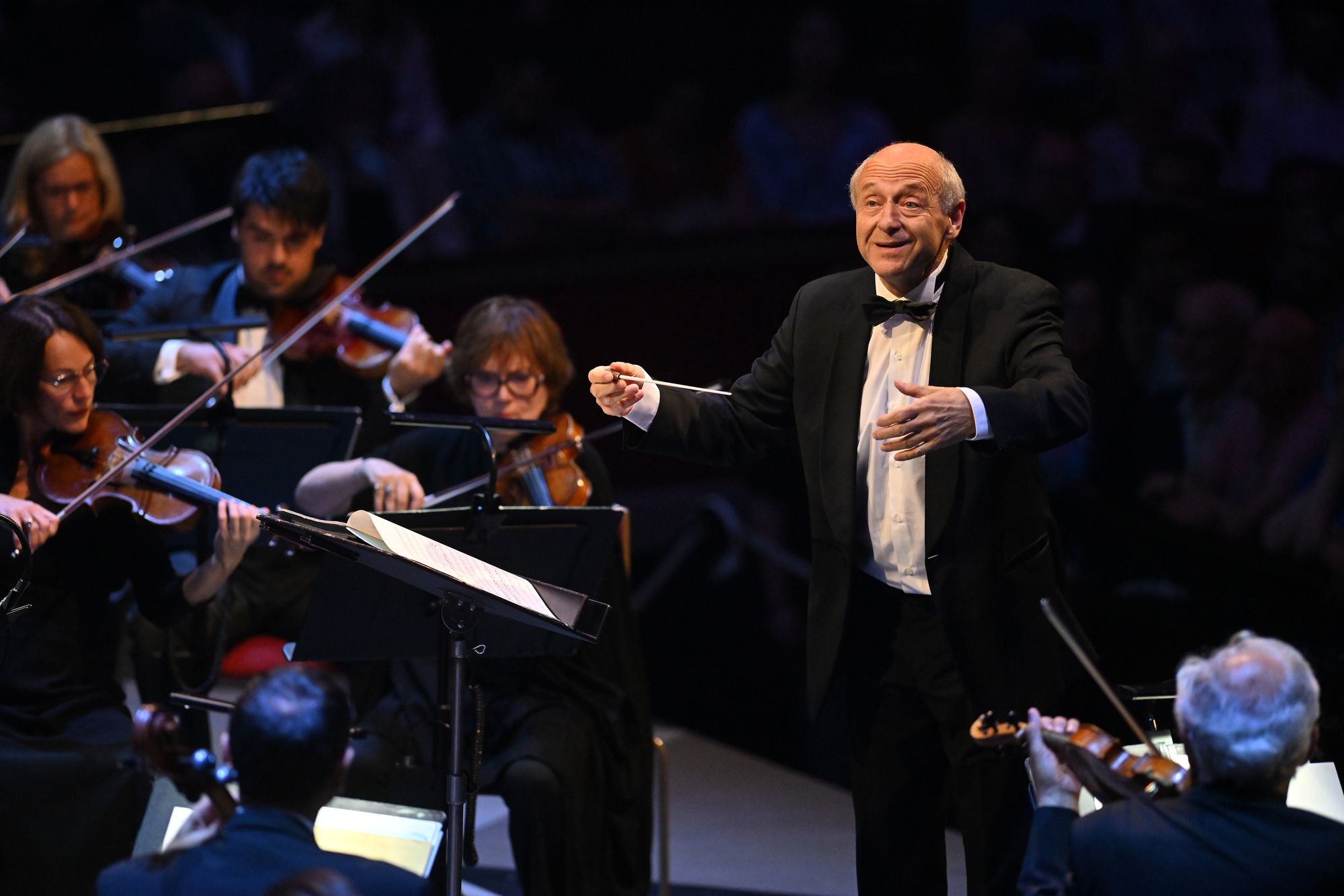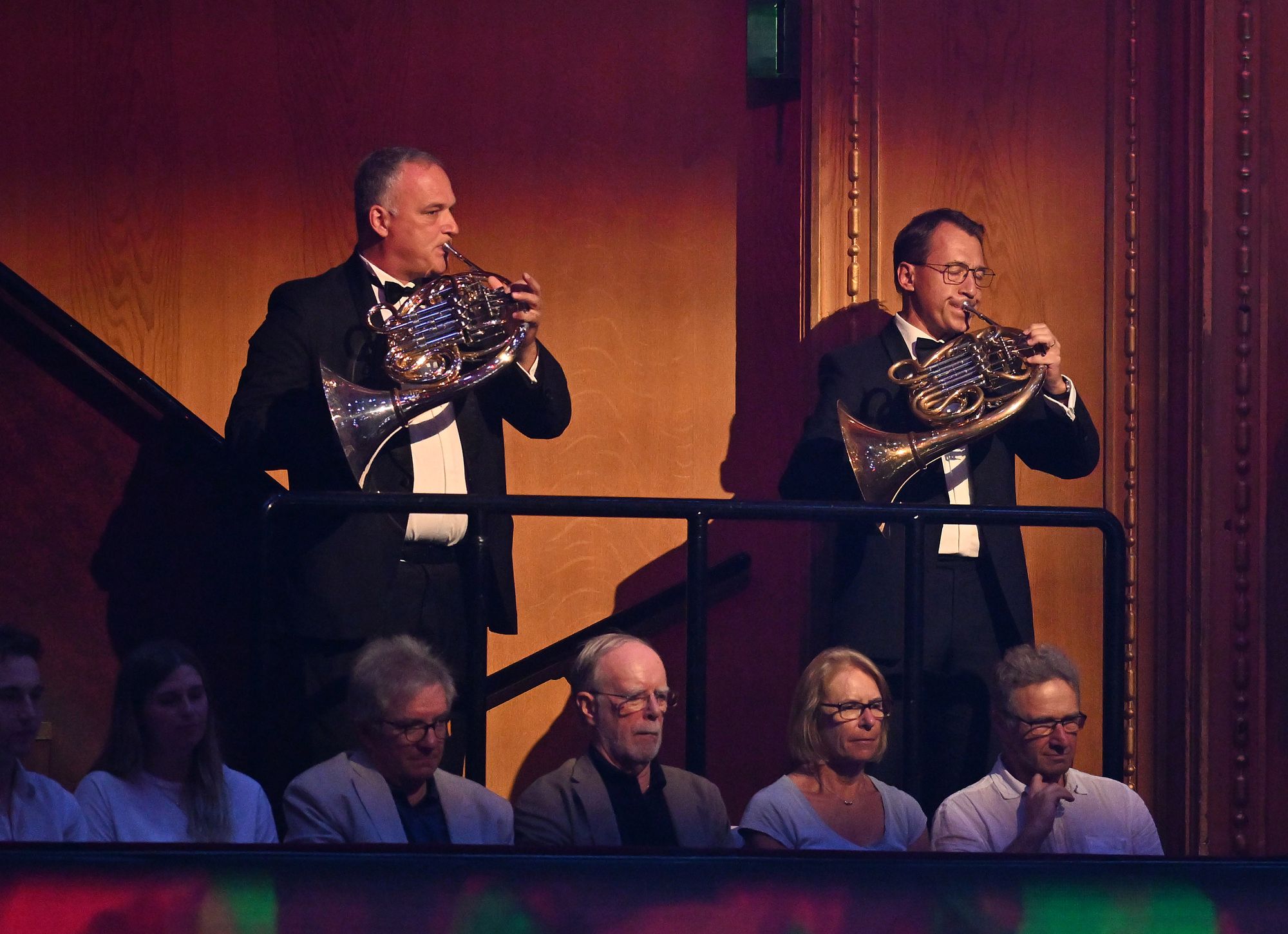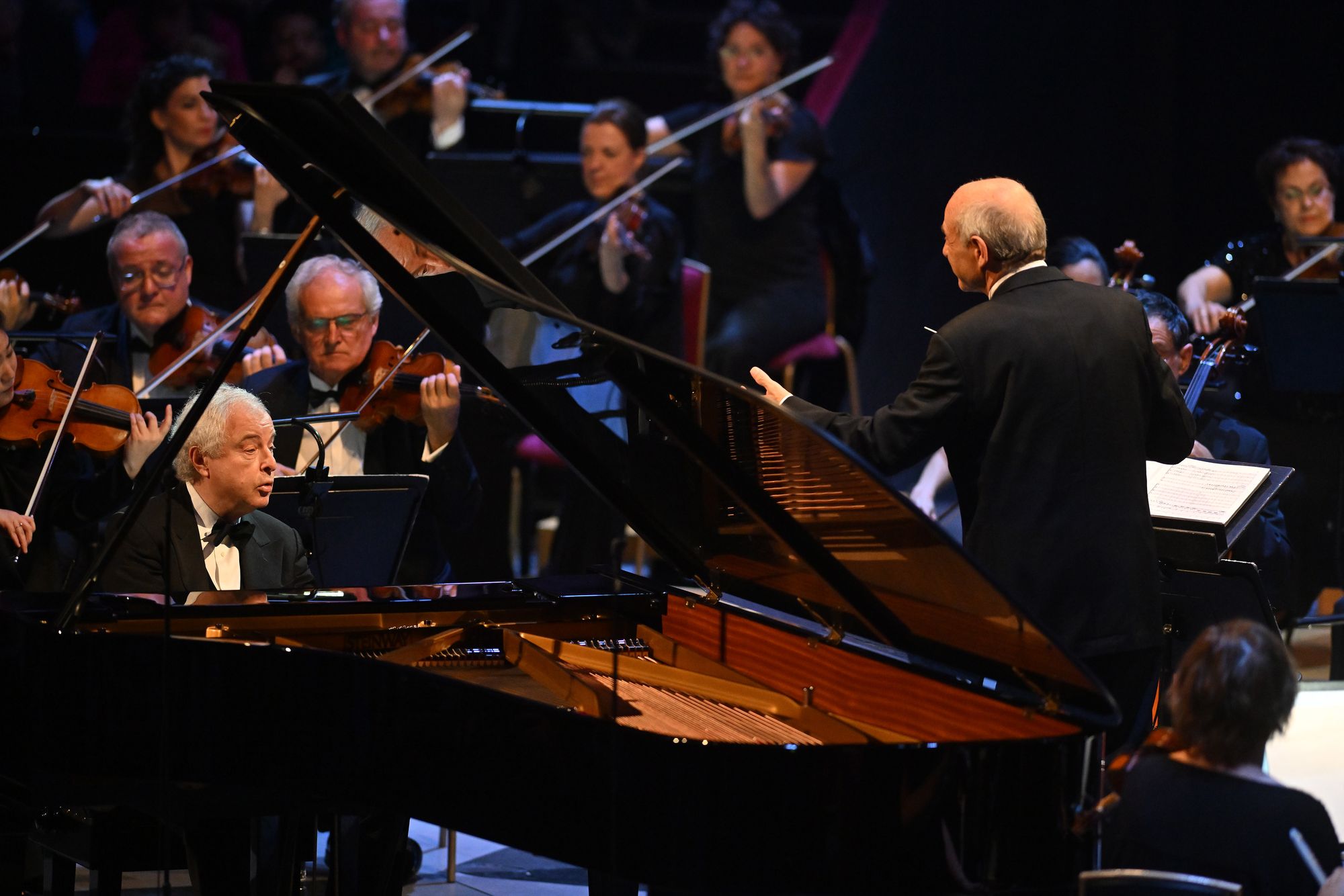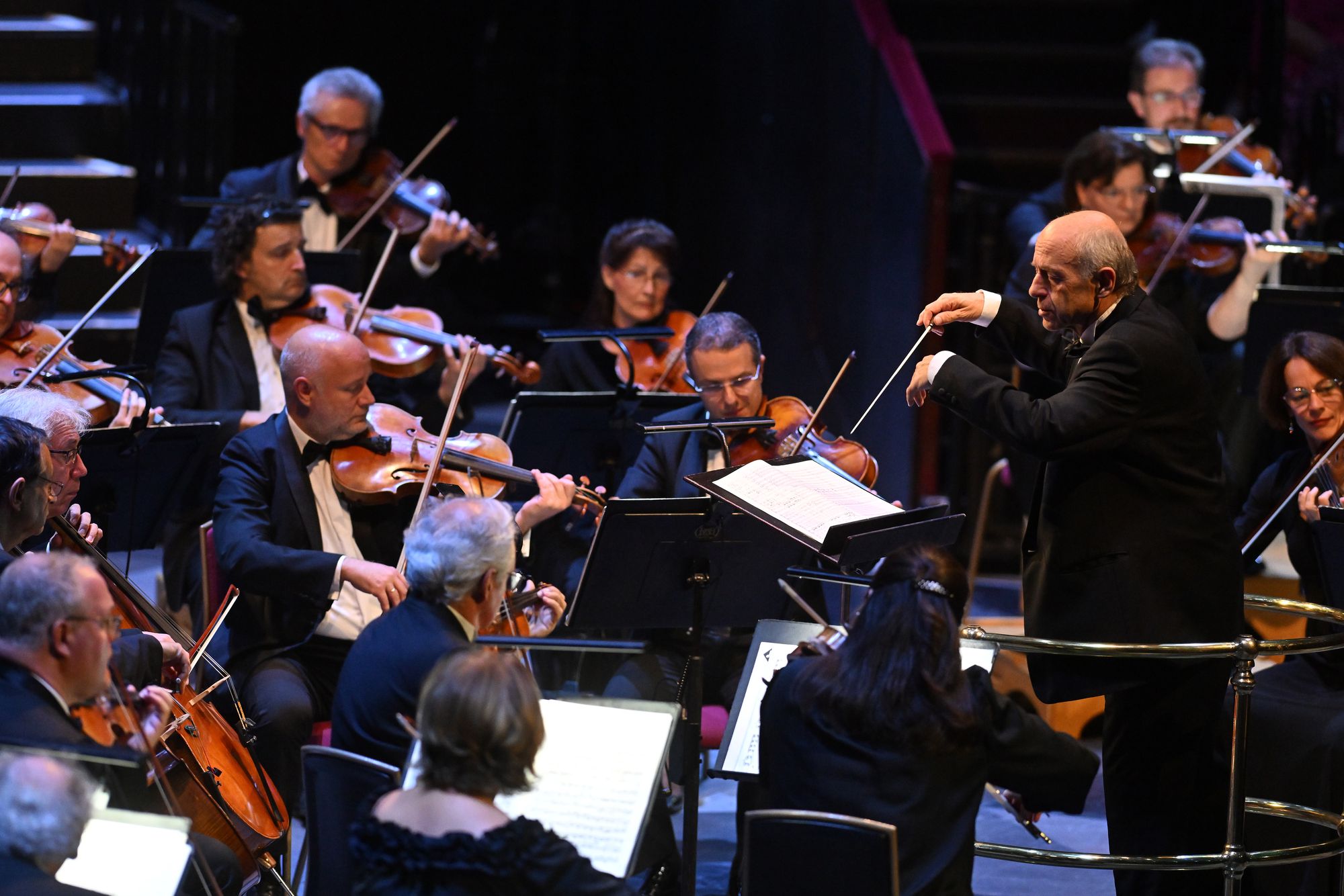Prom 37: Budapest Festival Orchestra
The Budapest Festival Orchestra is always a welcome guest at the Proms ...

PROM 37 Weber, Schumann, Mendelssohn András Schiff (piano); Budapest Festival Orchestra / Iván Fischer. Royal Albert Hall, London,
Weber Der Freischütz, Overture (1821)
Schumann Piano Concerto in A minor, Op. 54 (1845)
Mendelssohn Symphony No. 3 in A minor, Op. 56 (1829-42)
The Budapest Festival Orchestra is always a welcome guest at the Proms. Their core characteristics: warmth of sound, generosity of spirit, coupled with a sense of adventure (even fun!) and an insatiable curiosity – even in a meat-’n’-two-veg programme such as this - is compelling.
Right from the opening oboe tuning (which only landed on the expected A-natural after a melisma and which then gave out several other tones for different sections of the orchestra), this was not an ordinary Prom. The forest-invoking horn quartet of Weber’s Der Freischütz was split into two pairs, each standing on either side of the Albert Hall’s famous organ. Visually impactful, the sound, too, was fabulously clear and warm. Similarly, the line of double-basses at the back of the orchestra (behind the woodwind) provided a spinal cord of depth. How beautifully the horns played, the more active lines of the second player brilliantly individual yet perfectly of the whole in terms of timbre. This was the perfect linking of superb esneble (so together form all departments) and the frisson of live performance. The overture is a micro-drama in and of itself, and Fischer presented it as such; if only the actual opera had followed …

But this was a concert, and it was to Schumann we turned. Proms performances by Sir András Schiff are always keenly anticipated, and the huge ovation Schuff received from the Prommers certainly attested to that. But then, the unthinkable: almost as shoddy an opening gesture as one can imagine. Apporximate, and with the final two chords out of sync with the orchestra. The performancece setttled to an extent (certainly in terms of right notes), but never fully at home, musically. Schuff’s characteristic beauty of tone was certainly there, as was his wont to dwell on beauties and to bring out favoured inner lines.
To balance this, much felt like chamber music, the orchestra beautifully light (in spirte of the retention of the full complement of six double-basses). The principal oboe and clarinet were particularly fine (Victor Aviat and Ákos Ács, respectively); it was interesting to hear the clarinet dscents foregrounded as a kind of postlude to the thematic statements (so often they get lost in the texture)l. It was in the central movement (more an Internezzo than slow movement) that Schiff sounded once more ungrounded, with even a sense of rote creeping in; the ear naturally grvitated towards the orchetsra. The finale again felt a little insecure from Schuff. Interesting how Fischer conducted the triplet crotchets in three (as opposed to a two beats, the second cutting through the the second and thrid triplet crotchets); but the distracion was Schiff.

Encores nevertheless were obligatory, but certainly not what one might have expected. Schiff accompanied the (standing) orchestra in one of Brahms’ Zigeunerlieder; he did get his moment of solo spotlight, though, with Schumann’s ‘The Happy Farmer’ from Album for the Young as the second encore.
Thence to the finest performance of Mendelssohn’s Third Symphony this reviewer has ever heard. All movemets had strength and purpose: the beautifully shaped first movement seemed, in its slow opening, to be a blood-brother to Schumann’s ‘Rhenish’ Symphony; but the Allegro un poco agitato could only be from Mendelssohn’s hand. Fischer brought a chamber music translucency to this that perfectly suited the music. Certainly there was a sense of expansion about this performance, and a deep vein of lyricism. How exellently the bassoonist Dániel Tillián emerged in the rollicking Scherzo, and how the horms were a-leaping. Listen carefully, and one hears the hair’s-breadth precision of the strings. But it was the third movement, the Adagio, that was the crowing achievement of thei superlative performance – perfectly judged in terms of tempo and flow, the music seemed perfect, a processional winking at Berlioz, the whole infused with a freshness in performance one rarely hears.

With that in mnd, I remain unsure about the final coup de théâtre of having the sections of the orchestra stand up one by one towards the end of the finale - a sort of Mahler First Symphony ending that spreads through the orchestra. But nothing, nothing, could – or can – wipe out the memory of Fischer and Budapest Orchestra’s exquisite slow movement,
An encore, inevitably: a spirited Dvořák Slavonic Dance, No. 9, Op. 72/1 (or B 147/1, if you prefer). Terrific.
It is worth looking back on Classical Explorer re other Budapest Festival Orchestra recordings: here is our post on their recording with Fischer of Brahms’ Third Symphony and Second Serenade; while thier Mahler Das Lied von der Erde was one of several recordings of that work considered in this long post. As far as Mendelssohn is concerned, I'm listing below as an Amazon link the Budapest ensemble's superb recording of the incidental music from A Midsummer Night's Dream: a classic recording set to share shelf space with the classic Klemperer!
All photos © BBC / Mark Allan
